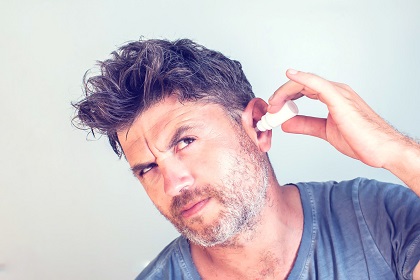Search
Related Articles
What is a hearing aid?
A hearing aid is an electronic, battery-operated device that amplifies and changes sound to help you hear better.
How do I know if I need a hearing aid?
The best way to find out if you need a hearing aid is to see a specialist called an audiologist. An audiologist is a licensed professional who will perform tests to find out what kind of hearing loss you have and whether hearing aids can help you. Your doctor can recommend an audiologist and help set up an appointment for you.
Because some hearing loss develops from medical problems, your doctor may also refer you to an otolaryngologist (an ear, nose and throat doctor). If you have ear pain, drainage, sudden hearing loss or dizziness, it is especially important that you see an otolaryngologist.
How do hearing aids work?
Every hearing aid contains a microphone to pick up sound around you, an amplifier to make sound louder, and a receiver to deliver the sound to your ear. All hearing aids run on batteries. Some have extra features. Among the most popular features are adapters that make it easier to hear on the telephone, directional microphones that help you separate sounds coming from in front of you from sounds coming from behind you or beside you, and feedback cancellation that prevents the aid from squeaking.
What are the different kinds of hearing aids?
There are five basic styles of hearing aids:
• Completely-in-the-canal hearing aids
These aids fit completely into the ear canal. They are the smallest aids available and therefore the least noticeable. However, because they are so small, the parts of these hearing aids (such as the volume control and batteries) can be hard to see and adjust.
• In the canal hearing aids
These hearing aids fit partly in the ear canal, but not as deeply as the completely-inthe-canal aid. They include features that won't fit on completely-in-the-canal aids such as feedback cancellation and volume control.
• Half-shell hearing aids
A smaller version of the in-the-canal hearing aid, the half shell fills the lower portion of the bowl-shaped part of your outer ear. It fits better in smaller ears and has the cosmetic advantage of being small.
• In-the-ear hearing aids
Also called full shell, these hearing aids fill most of the bowl-shaped area of your outer ear. They are more visible than in the-canal aids and may pick up wind noise, but are generally easier to insert in the ear. Batteries last longer and these hearing aids are easier to handle than smaller aids. Although they are more visible, they still have the cosmetic advantage of fitting inside the ear.
• Behind-the-ear hearing aids
All parts are contained in a plastic case that hooks over the top and rests behind the ear. The case is connected to an ear mold, which fits into the ear. These are the bulkiest hearing aids but many people find them easiest to use. Behind-the-ear hearing aids are less bulky and more comfortable than they were even a few years ago. Because they can amplify sound more than other hearing aid styles, they are often the best choice for people with severe hearing loss.
What does digital technology mean?
Most hearing aids today contain a computer chip that can be programmed for different listening environments such as quiet conversation in your home, noisy situations like a restaurant, or large areas like a theater. Many aids now use ‘digitized sound processing’ to convert sound waves into a computerized code. With this technology, the hearing aid can analyze sounds and make automatic adjustments to help you hear better as you move from one environment to another.
What are directional microphones?
Though no hearing aid can completely ‘remove’ background noise, directional microphones are the best technology available to help sort out speech from background noise. These microphones are designed to amplify sounds directly in front of the user more than the sounds to the back and sides of the user. So, in a crowded restaurant, the hearing aid will amplify the voice of the person you are looking at more than the voices at tables behind and around you.
How much do hearing aids cost?
Hearing aid costs vary according to styles and electronic features. Prices range starts from thousands to ten thousands of Chinese currency. Itis important to shop carefully. You can purchase them at pharmacy or medical equipment stores, discounts may apply.
Here are a few tips:
• Buy from a professional audiologist or hearing aid specialist
• Bring a friend along to help you make the decision
• Ask about add-on features. Don’t be pressured into buying extras you don’t need
• Get a contract in writing that includes a trial period and follow-up visits
Price is an important factor, of course, but it should not be the only thing you think about when you are choosing a hearing aid. Buying a reliable product can save repair costs and the frustration of a hearing aid that doesn’t work well.
Will my health insurance pay any of the costs of acquiring a hearing aid?
Some health insurers cover the costs of hearing tests, a hearing aid evaluation, and partial or even full coverage of a hearing aid. Check with your health insurance plan to find out exactly what your policy covers.
This document is intended to provide health related information so that you may be better informed. It is not a substitute for your care team's medical advice and should not be relied upon for treatment for specific medical conditions.
© 2017 The General HospitalCorporation.
Primary Care OfficelnSite
developed by the MGH Laboratory of Computer Science and Division of General Internal Medicine
Click the link for more information on E.N.T Clinical Service









